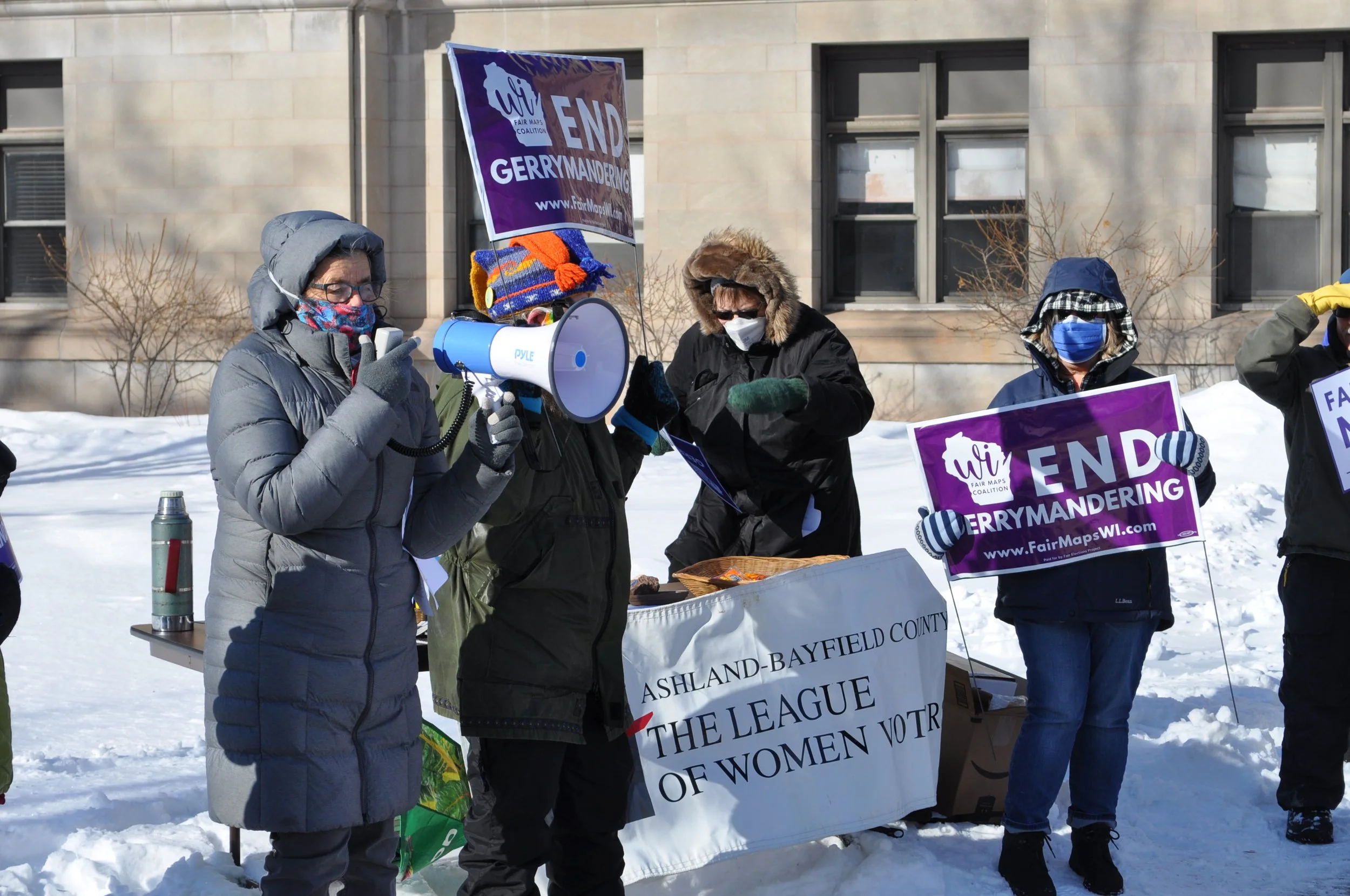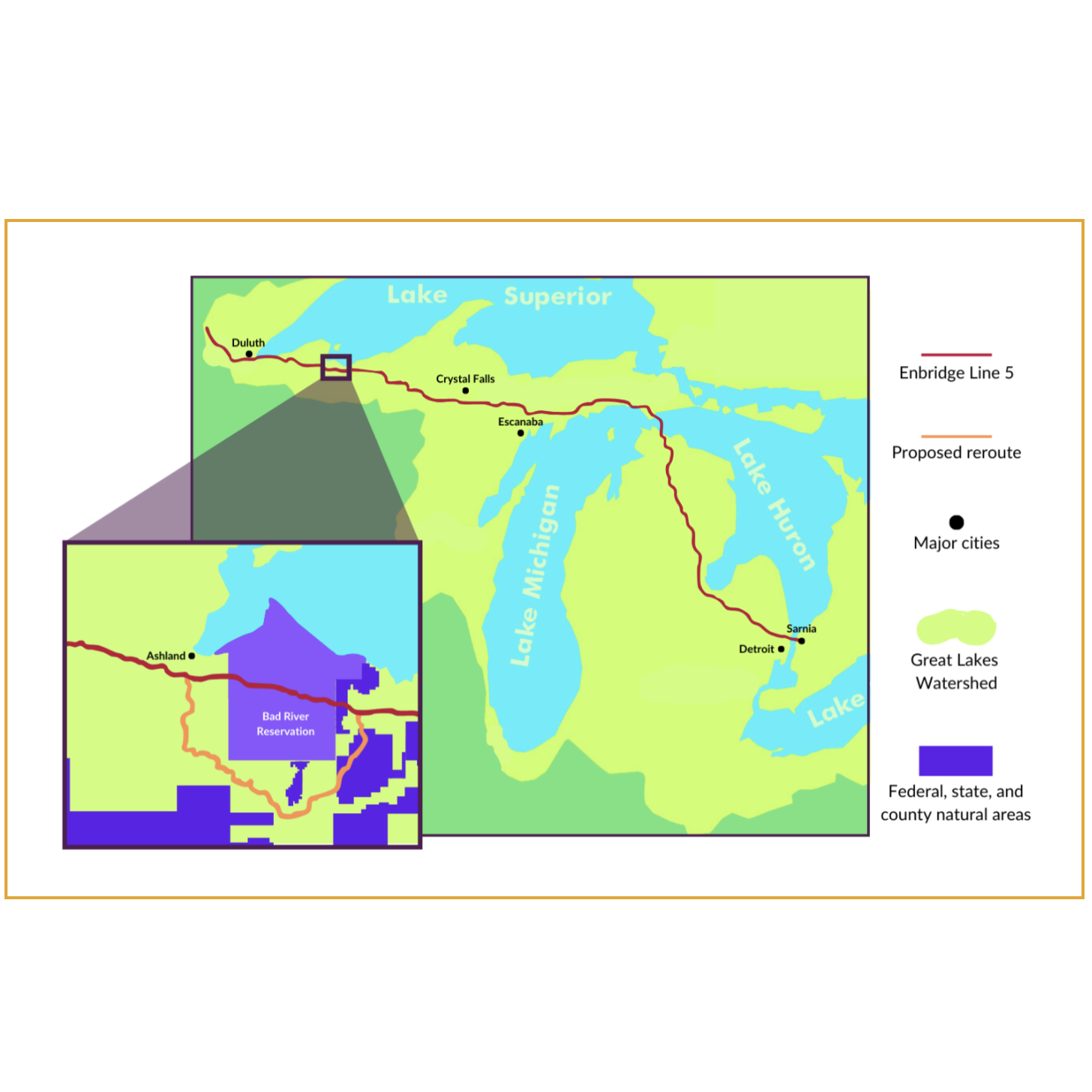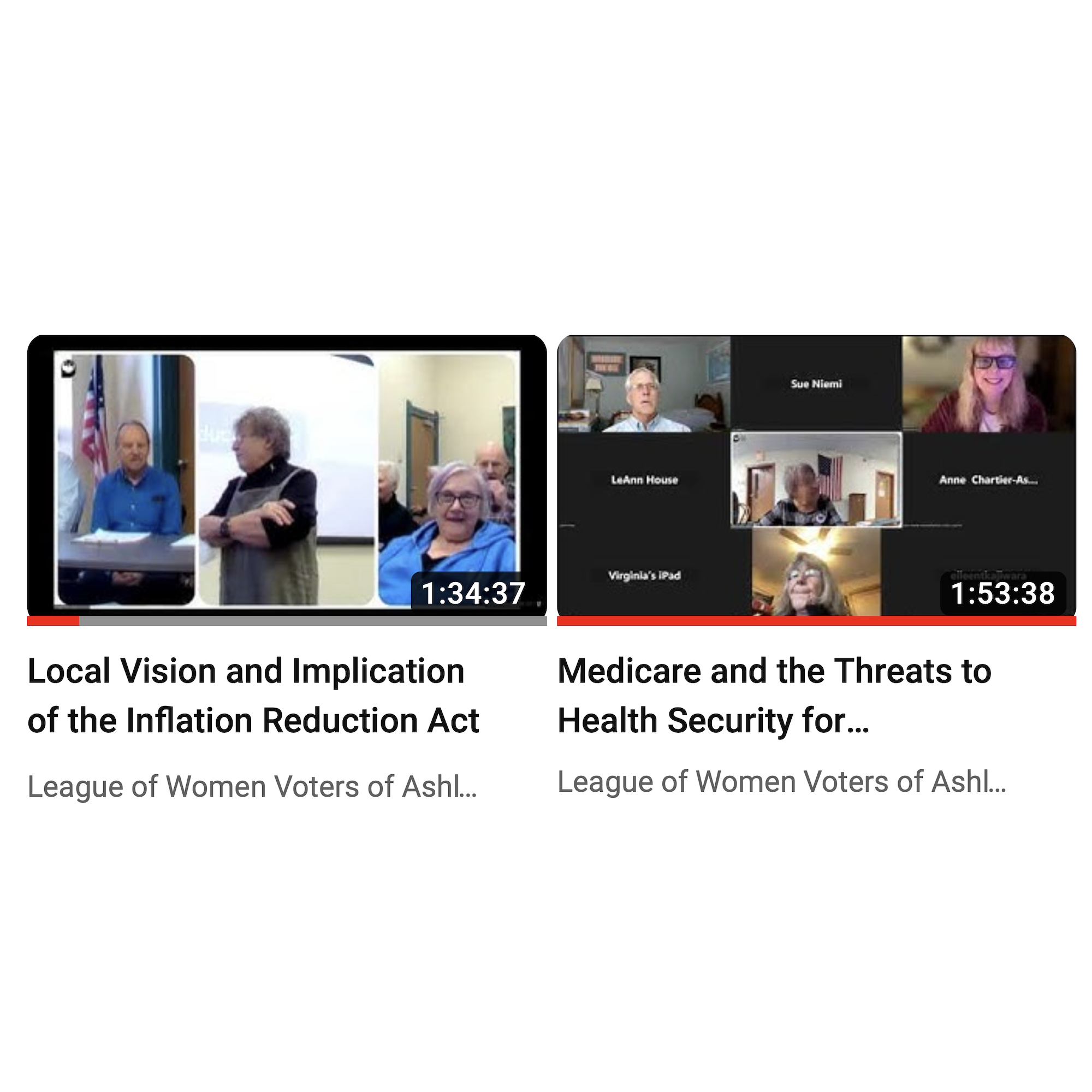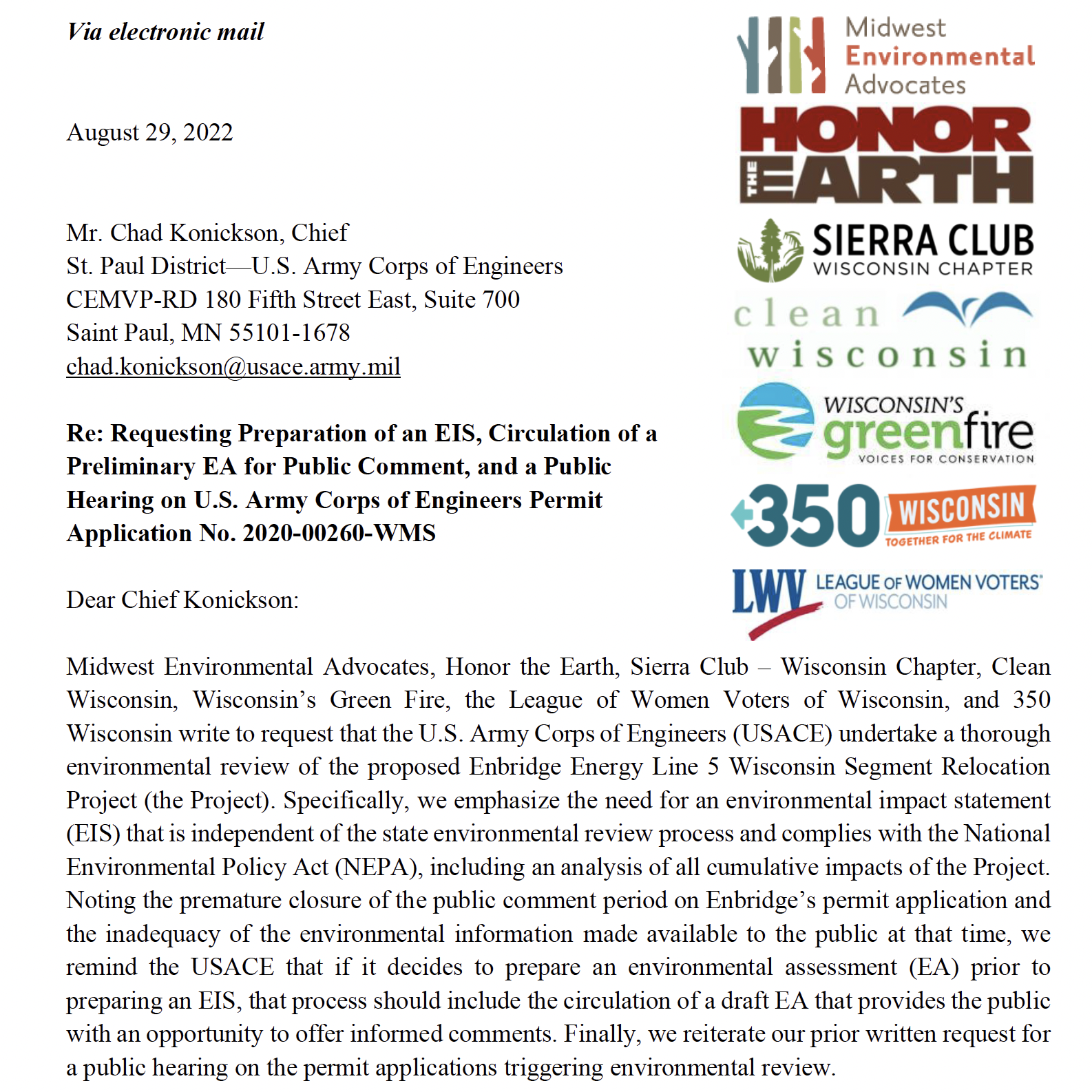ASHLAND-BAYFIELD COUNTIES
LEAGUE OF WOMEN VOTERS
May 15, 2014
Mr. Don C. Faith
Department of Natural Resources
Bureau of Air Management
P.O. Box 7921
Madison, Wisconsin 53707
RE: Enbridge Energy Permit Application No. 13-DCF-129
Dear Mr. Faith:
I am writing on behalf of the League of Women Voters of Ashland and Bayfield Counties to urge you to deny Enbridge Energy’s application for a permit to construct huge new oil storage tanks in Superior and increase the capacity of its pipeline no. 61 to accommodate increased oil shipments from Alberta, on the grounds that this project could lead to more oil spills, water pollution, increased demand for tar sands oil, and more climate change pollution.
While the air emissions from the vented tanks in Superior are not insignificant, the broader repercussions of the proposed pipeline expansion are of much greater concern. Line 61 cuts through Wisconsin from Superior to Illinois, putting many waterways at risk, including the Wisconsin River and Lake Superior, a resource particularly cherished by residents of this area, including native peoples. Enbridge pipelines have ruptured, leaked and spilled oil into waterways here and elsewhere. One catastrophic spill of a million gallons of tar sands crude into the Kalazamazoo River in 2010 is still not cleaned up four years later, despite remedial efforts costing more than $1 billion. Another rupture two years later, in the Line 61 corridor, resulted in a geyser of crude oil near Grand Marsh, Wisconsin. U.S. Transportation Secretary Ray Lahood stated, “…accidents, like the one in Wisconsin, are absolutely unacceptable.” PHMSA issued an order requiring an extensive review of repairs and corrective actions before allowing the pipeline to reopen. These are the only two of many examples of why, given the present risk to Wisconsin’s natural resources, Enbridge should not be allowed to expand the flow of tar sands crude to and through the state.
As troublesome as the risk to the state’s waterways undeniably is, an even more disturbing repercussion of the proposed pipeline is its potentially disastrous contribution to climate change. It is commonly understood that producing and burning tar sands oil emit particularly high levels of carbon, emissions which are, or should be, of grave concern. Both the very recent report from the Intergovernmental Panel on Climate Change (IPCC) and the Third U.S. National Climate Assessment, issued on May 6, confirm that “climate change is affecting Americans in every region of the U.S. and key sectors of the national economy.” The latter report states that “observations unequivocally show that climate is changing and that the warming . . . is primarily due to human induced emissions of heat-trapping gases . . . [which] come mainly from burning coal, oil and gas.” The report’s findings with respect to the consequences are dire:
Certain types of extreme weather events with links to climate change have become more frequent and/or intense, including prolonged periods of heat, heavy downpours, and in some regions, floods and droughts. In addition, warming is causing sea level to rise and glaciers and Arctic sea ice to melt, and oceans are becoming more acidic as they absorb carbon dioxide. These and other aspects of climate change are disrupting people's lives and damaging some sectors of our economy.
We are already seeing the effects of climate change in Wisconsin. The drought and heat wave in 2012, followed by relentless rain and flooding last year give us a glimpse of what climate change could cost Wisconsin in the future, from our farms to our forests to our cold-water fisheries. More tar sands oil is the last thing our climate needs.
In the words of the National Climate Assessment, these recent findings “underscore the need for urgent action to combat the threats from climate change, protect American citizens and communities today, and build a healthy, sustainable future for our children and grandchildren.” Given the significance of the potential consequences of granting this permit, we ask that the Department undertake a thorough environmental analysis before proceeding further.
Sincerely,
Madelaine Herder
President, LWV of Ashland Bayfield Counties



























































































